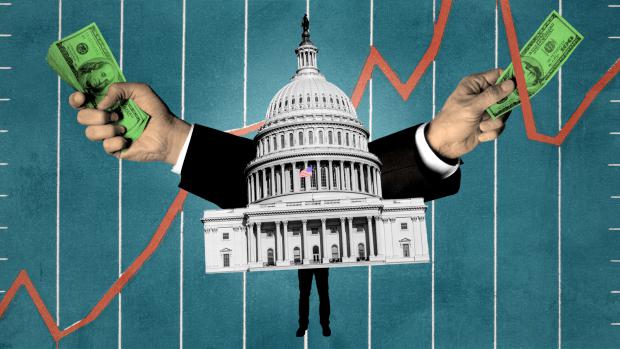
Breaking News
 War on Words: Both Parties Try to Silence Speech They Don't Like
War on Words: Both Parties Try to Silence Speech They Don't Like
 Low Interest Rates Don't Have the Stimulus the Economy Craves
Low Interest Rates Don't Have the Stimulus the Economy Craves
 "What's About To Happen Is Not A Coincidence" | Whitney Webb
"What's About To Happen Is Not A Coincidence" | Whitney Webb
 Future of Satellite of Direct to Cellphone
Future of Satellite of Direct to Cellphone
Top Tech News
 3D Printed Aluminum Alloy Sets Strength Record on Path to Lighter Aircraft Systems
3D Printed Aluminum Alloy Sets Strength Record on Path to Lighter Aircraft Systems
 Big Brother just got an upgrade.
Big Brother just got an upgrade.
SEMI-NEWS/SEMI-SATIRE: October 12, 2025 Edition
 Stem Cell Breakthrough for People with Parkinson's
Stem Cell Breakthrough for People with Parkinson's
 Linux Will Work For You. Time to Dump Windows 10. And Don't Bother with Windows 11
Linux Will Work For You. Time to Dump Windows 10. And Don't Bother with Windows 11
 XAI Using $18 Billion to Get 300,000 More Nvidia B200 Chips
XAI Using $18 Billion to Get 300,000 More Nvidia B200 Chips
 Immortal Monkeys? Not Quite, But Scientists Just Reversed Aging With 'Super' Stem Cells
Immortal Monkeys? Not Quite, But Scientists Just Reversed Aging With 'Super' Stem Cells
 ICE To Buy Tool That Tracks Locations Of Hundreds Of Millions Of Phones Every Day
ICE To Buy Tool That Tracks Locations Of Hundreds Of Millions Of Phones Every Day
 Yixiang 16kWh Battery For $1,920!? New Design!
Yixiang 16kWh Battery For $1,920!? New Design!
 Find a COMPATIBLE Linux Computer for $200+: Roadmap to Linux. Part 1
Find a COMPATIBLE Linux Computer for $200+: Roadmap to Linux. Part 1
Chip Roy And Allies Poised To Demand Vote On Congressional Stock-Owning Ban

As if Speaker Mike Johnson didn't already have enough headaches awaiting him when he eventually reconvenes the House, Congressman Chip Roy and a bipartisan group of representatives are promising to push hard for a vote on a bill that would put an end to stock-trading by members of the federal legislature -- who routinely have advance access to information that moves both individual securities and entire markets.
"We're going to have a vote on stock trading," said Roy on Monday. "When we get back, we got to have a conference discussion about this, or we're going to be moving forward." Joined by Democrats Seth Magaziner and Pramila Jayapal, the Texas Republican Roy introduced the Restore Trust in Congress Act (HR 5106) on Sept 3 and they've quickly amassed 82 cosponsors. Though backers come from both sides of the aisle, Democrats have joined at a higher clip -- there are 64 Democratic and 18 Republican cosponsors.
The New York Times determined that, between 2019 and 2021, 18% of federal legislators traded stocks in industries that are within the scope of their particular committees. However, the Restore Trust in Congress Act's sweeping scope goes far beyond that dynamic, banning members of Congress, their spouses, dependent children and trustees from owning, buying, or selling individual stocks, securities, commodities, futures, and other comparable assets. Current members of Congress would have to unload any "covered investment" with 180 days, while new members would have to divest within 90 days after taking the oath of office. Legislators would be allowed to own diversified mutual funds, Treasury securities, municipal bonds and small businesses.
To ease the sting of capital gains taxes, the measure allows legislators to defer capital gains by reinvesting sale proceeds in comparable investments like mutual funds. Still, the comprehensiveness of the ban could be its undoing altogether, or a compromise could bring the passage of a watered-down measure.
The bill faces opposition by many Republicans, but other GOP members who back the bill told Politico that Johnson has assured them it will get his attention, with Roy saying the speaker is under increasing pressure. "I think there's going to still be this sort of give and take about how serious some of us are on a real ban as opposed to just some soft limits," Roy said. "So we've got to keep working on that."



